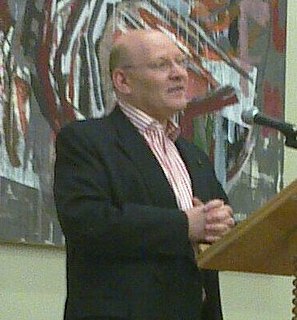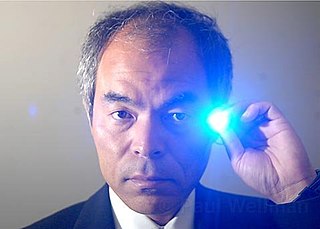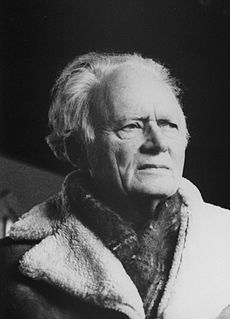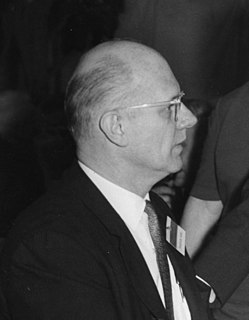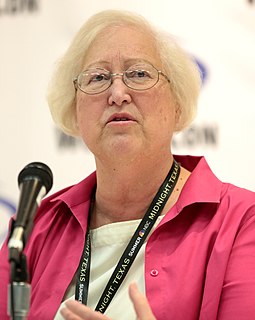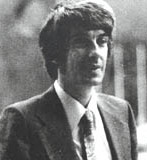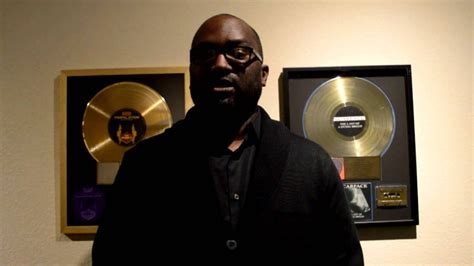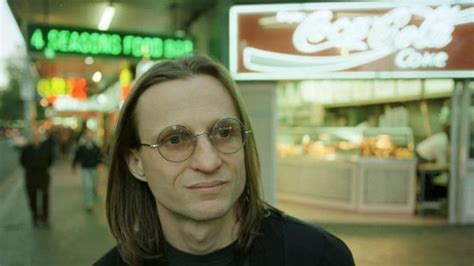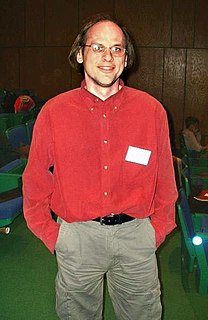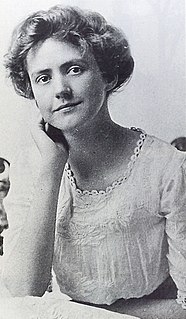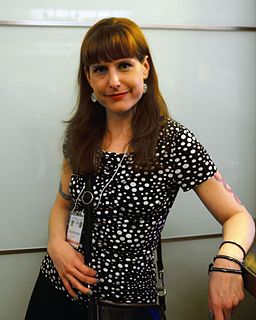Top 1200 Scientific Theory Quotes & Sayings - Page 11
Explore popular Scientific Theory quotes.
Last updated on December 19, 2024.
All the classical meditation traditions, in one way or another, stress nonattachment to the self as a goal of practice. Oddly, this dimension is largely ignored in scientific research, which tends to focus on health and other such benefits. I suppose the difference has to do with the contrast in views of the self from the spiritual and scientific perspectives. Scientists value the self; spiritual traditions have another perspective.
Managers are already voracious consumers of theory. Every time they make a decision or take action, it's based on some theory that leads them to believe that action will lead to the right result. The problem is, most managers aren't aware of the theories they're using, and they often use the wrong theories for the situation.
The art of writing is mysterious; the opinions we hold are ephemeral , and I prefer the Platonic idea of the Muse to that of Poe, who reasoned, or feigned to reason, that the writing of a poem is an act of the intelligence. It never fails to amaze me that the classics hold a romantic theory of poetry, and a romantic poet a classical theory.
The reality is that while heliocentrism was discussed and often accepted within Catholic circles - it was effectively the only place where it could be - the more traditional view of the solar system still prevailed even among leading scientists. So it's hardly surprising that Galileo's Catholic judges had difficult accepting his views, especially when they saw themselves as defending scientific orthodoxy and were supported in this by the scientific establishment.
The importance of group theory was emphasized very recently when some physicists using group theory predicted the existence of a particle that had never been observed before, and described the properties it should have. Later experiments proved that this particle really exists and has those properties.
But I should be very sorry if an interpretation founded on a most conjectural scientific hypothesis were to get fastened to the text in Genesis... The rate of change of scientific hypothesis is naturally much more rapid than that of Biblical interpretations, so that if an interpretation is founded on such an hypothesis, it may help to keep the hypothesis above ground long after it ought to be buried and forgotten.
It required unusual inquisitiveness to pursue the development of scientific curiosities such as charged pith balls, the voltaic cell, and the electrostatic machine. Without such endeavors and the evolution of associated instrumentation, initially of purely scientific interest, most of the investigations that lead to the basic equations of electromagnetism would have been missed. ... We would have been deprived of electromagnetic machinery as well as knowledge of electromagnetic waves.
I'm a fan of the simulation theory. I tend to think that most of our existence, if not all of it, is part of a hologram created by some type of other life form, or some type of other artificial intelligence. Now, it may be impossible for us to ever know that, but a bunch of recent studies in string theory physics have proved that.
I had made considerable advance ... in calculations on my favourite numerical lunar theory, when I discovered that, under the heavy pressure of unusual matters (two transits of Venus and some eclipses) I had committed a grievous error in the first stage of giving numerical value to my theory. My spirit in the work was broken, and I have never heartily proceeded with it since.
Science has long been in the value business. Despite a widespread belief to the contrary, scientific validity is not the result of scientists abstaining from making value judgments; rather, scientific validity is the result of scientists making their best efforts to value principles of reasoning that link their beliefs to reality, through reliable chains of evidence and argument.
MY THEORY: the trouble is in the mind, for the body is only the house for the mind to dwell in . . . If your mind has been deceived by some invisible enemy into a belief, you have put it into the form of a disease, with or without your knowledge. By my theory or truth I come in contact with your enemy and restore you to health and happiness.
Without theory, practice is but routine born of habit. Theory alone can bring forth and develop the spirit of invention. ... [Do not] share the opinion of those narrow minds who disdain everything in science which has not an immediate application. ... A theoretical discovery has but the merit of its existence: it awakens hope, and that is all. But let it be cultivated, let it grow, and you will see what it will become.
Many people have the impression that there is significant scientific disagreement about global climate change. It's time to lay that misapprehension to rest. There is a scientific consensus on the fact that Earth's climate is heating up and human activities are part of the reason. We need to stop repeating nonsense about the uncertainty of global warming and start talking seriously about the right approach to address it.
Often, some people dress something up to make it sound scientific, use scientific words, call themselves doctor something-or-other, and then you look them up, and they're trying to make it sound like something it's not. There's this entire field that's adding the word 'quantum' to everything. It doesn't even make sense in that context.
An old French mathematician said: "A mathematical theory is not to be considered complete until you have made it so clear that you can explain it to the first man whom you meet on the street." This clearness and ease of comprehension, here insisted on for a mathematical theory, I should still more demand for a mathematical problem if it is to be perfect; for what is clear and easily comprehended attracts, the complicated repels us.
You have all this education theory, and people try to make larger statements than maybe what their data would back up, because they've done these small experiments that are tied to a very particular case with a very particular implementation... theory definitely matters, but I think dogma matters less.
Don't they know science doesn't work like that? You can't just order scientific breakthroughs. They happen when you are looking at something you've been working on for years and suddenly see a connection you never noticed before, or when you're looking for something else altogether. Sometimes they even happen by accident. Don't they know you can't get a scientific breakthrough just because you want one?
I think there's this essential human desire to have a unified field theory. Everyone is like, 'I want to unlock the single secret to 'Lost.' There isn't any one secret. There is not a unified field theory for 'Lost,' nor do we think there should be, because philosophically, we don't buy into that as a conceit.
To plead the organic causation of a religious state of mind, then, in refutation of its claim to possess superior spiritual value, is quite illogical and arbitrary, unless one have already worked out in advance some psycho-physical theory connecting spiritual values in general with determinate sorts of physiological change. Otherwise none of our thoughts and feelings, not even our scientific doctrines, not even our dis -beliefs, could retain any value as revelations of the truth, for every one of them without exception flows from the state of their possessor's body at the time.
On the theory of natural selection we can clearly understand the full meaning of that old canon in natural history, “Natura non facit saltum.” This canon, if we look only to the present inhabitants of the world, is not strictly correct, but if we include all those of past times, it must by my theory be strictly true.
The 'medical examination' to which abductees are said to be subjected, often accompanied by sadistic sexual manipulation, is reminiscient of the medieval tales of encounters with demons. It makes no sense in a sophisticated or technical framework: any intelligent being equipped with the scientific marvels that UFOs possess would be in a position to achieve any of these alleged scientific objectives in a shorter time and with fewer risks.
We must not forget that when radium was discovered no one knew that it would prove useful in hospitals. The work was one of pure science. And this is a proof that scientific work must not be considered from the point of view of the direct usefulness of it. It must be done for itself, for the beauty of science, and then there is always the chance that a scientific discovery may become like the radium a benefit for humanity.
The Gaia Hypothesis of James Lovelock [and Lynn Margulis] puts forward a scientific view of the living Earth, which in one respect is modern, empherical, scientific, in another respect re-awakens an ancient archetype, which in fact is so clearly suggested by the very name of the hypothesis, Gaia, the Greek name for Mother Earth.
When you ask why did some particular question occur to a scientist or philosopher for the first time, or why did this particular approach seem natural, then your questions concern the context of discovery. When you ask whether the argument the philosopher puts forth to answer that question is sound, or whether the evidence justifies the scientific theory proposed, then you've entered the context of justification. Considerations of history, sociology, anthropology, and psychology are relevant to the context of discovery, but not to justification.
I was never a prisoner of any theory. What guided me were reason and reality. The acid test I applied to every theory or scheme was: Would it work? The acid test is in performance, not promises. It is not from weakness that one commands respect. As long as the leaders take care of their people, they will obey the leaders.
In the first stage of insight-building, all that researchers can do is observe phenomena. Second, they classify the phenomena in a way that helps them simplify the apparent complexities of the world so they can ignore the meaningless differences and draw connections between the things that really seem to matter. Third, based on the classification system, they propose a theory. The theory is a statement of what causes what and why, and under what circumstances.
What I do for living, working on something called string theory which we think may answer the fundamental question: Are there other universes? Can you go through a black hole? Can you warp the fabric of space and time and meet your mother before you were born? These are all questions that in principle string theory should be able to answer.
No theory changes what it is a theory about. Nothing is changed because we look at it, talk about it, or analyze it in a new way. Keats drank confusion to Newton for analyzing the rainbow, but the rainbow remained as beautiful as ever and became for many even more beautiful. Man has not changed because we look at him, talk about him, and analyze him scientifically. ... What does change is our chance of doing something about the subject of a theory. Newton's analysis of the light in a rainbow was a step in the direction of the laser.
I would describe myself as a writer and a student of media. If there's a central idea in media theory, it's to take media as form. It might grow out of philosophical aesthetics or the study of literature and visual art, but the various strands of media theory converge in treating all of those as subsets of the study of media as form.
Trouble arises when either science or religion claims universal jurisdiction, when either religious dogma or scientific dogma claims to be infallible. Religious creationists and scientific materialists are equally dogmatic and insensitive. By their arrogance they bring both science and religion into disrepute.
One problem of the String Theory is that it's kind of a theory which can explain what the problems are, but the problems are such that you can't even pin it down and say this is exactly what it predicts, so lets go out and test it. So, it's not even capable of being wrong, or being falsified, or being showed to be wrong.
When people think science and cooking, they have no idea that it's not correctly expressed. We're actually applying the scientific method. People think chemistry and physics are science, but the scientific method is something else.... It's the science that the world of cooking generates: science of butter; science of the croissant.
After years of work in both areas of study, I concluded that the social sciences were different, in many important ways, from the natural sciences, but that the same scientific methods were applicable in both areas, and, indeed, that no very useful work could be done in either area except by scientific methods.
It often seems to me that's all detective work is, wiping out your false starts and beginning again." Yes, it is very true, that. And it is just what some people will not do. They conceive a certain theory, and everything has to fit into that theory. If one little fact will not fit it, they throw it aside. But it is always the facts that will not fit in that are significant.
Dilbert: It took weeks but I've calculated a new theory about the origin of the universe. According to my calculations it didn't start with a "Big Bang" at all-it was more of "Phhbwt" sound. You may be wondering about the practical applications of the "Little Phhbwt" theory. Dogbert: I was wondering when you'll go away.
[T]he influence of the German school is most obvious in relation to the contract theory of the origin of the state and the idea of the function of the state. The theory that the state originates in an agreement between men was assailed by the German thinkers and the historical, organic, evolutionary idea substituted for it.
I would supplant the ox with the automobile and pave instead of plowing the fields. 1 have a theory that if a corn field were paved, leaving out a brick for each hill, it would increase the yield, do away entirely with the mud, and give the farmer plenty of time to meditate on lofty subjects. That is only one theory. I have many others.
The true scientific understanding of the nature of existence is so utterly fascinating; how could you not want people to share it? Carl Sagan, I think, said 'when you're in love, you want to tell the world.' And who, on understanding a scientific view of reality, would not, as it were, fall in love and want to tell the world.
Mr. Greenspan did a very good job in the early 1990's. But recently he's fallen prey to this crazy theory that prosperity causes inflation. So they're trying to slow the economy down by raising interest rates. It's like a doctor saying you're in great health, so we have to make you sick a little bit. It's a bizarre theory. It's going to hurt our economy.
I wish there was a serious investigation into flying saucers that wasn't conducted by crackpots. Unfortunately nearly all of the people who are interested in them kind of manufacture the evidence to fit the theories rather than the other way around. So it's very hard to find any dispassionate treatment of them. Maybe there isn't any scientific basis in which case that's why you never see any scientific evidence.
I have characterized Ross as exemplifying an extreme position among theistic scientists. However, he is not so extreme as to promote the scientifically unsound notions of the young-Earth creationists and other anti-evolutionists ... They are so far off the scale that their scientific claims need not be taken seriously. Their distortions and misrepresentations of the scientific facts are not consistent with their self-righteous claims of acting to protect all that is good and moral.
As soon as I suspect a fine effect is being achieved by accident I lose interest. I am not interested...in unskilled labor. ...The scientific actor is an even worker. Any one may achieve on some rare occasion an outburst of genuine feeling, a gesture of imperishable beauty, a ringing accent of truth; but your scientific actor knows how he did it. He can repeat it again and again and again. He can be depended on.
Certainly I see the scientific view of the world as incompatible with religion, but that is not what is interesting about it. It is also incompatible with magic, but that also is not worth stressing. What is interesting about the scientific world view is that it is true, inspiring, remarkable and that it unites a whole lot of phenomena under a single heading.
We see many persons talking the most wonderfully fine things about charity and about equality and the rights of other people and all that, but it is only in theory. I was so fortunate as to find one who was able to carry theory into practice. He had the most wonderful faculty of carrying everything into practice which he thought was right.
Remember that [scientific thought] is the guide of action; that the truth which it arrives at is not that which we can ideally contemplate without error, but that which we may act upon without fear; and you cannot fail to see that scientific thought is not an accompaniment or condition of human progress, but human progress itself.
The mathematical framework of quantum theory has passed countless successful tests and is now universally accepted as a consistent and accurate description of all atomic phenomena. The verbal interpretation, on the other hand - i.e., the metaphysics of quantum theory - is on far less solid ground. In fact, in more than forty years physicists have not been able to provide a clear metaphysical model.
The fact that these scientific theories have a fine track record of successful prediction and explanation speaks for itself. (Which is not to say that I don't directly discuss the work of those philosophers who would disagree.) But even if we grant this, many will argue that scientific knowledge in humans, and, indeed, reflective knowledge in general, is quite different in kind from the knowledge we see in other animals.
I have an odd theory on happiness, and it bothers people. My general theory is that happiness is a reward for an animal doing what it should be doing. So if a horse runs, it feels happy. Or if you are too thin, you can't be happy, because evolution wants you to be tense and anxious, trying to wake up in the morning looking for food.
The tragedy of young-earth creationism is that it takes a relatively recent and extreme view of Genesis, applies to it an unjustified scientific gloss, and then asks sincere and well-meaning seekers to swallow this whole, despite the massive discordance with decades of scientific evidence from multiple disciplines. Is it any wonder that many sadly turn away from faith concluding that they cannot believe in a God who asks for an abandonment of logic and reason?
String theory has had a long and wonderful history. It originated as a technique to try to understand the strong force. It was a calculational mechanism, a way of approaching a mathematical problem that was too difficult, and it was a promising way, but it was only a technique. It was a mathematical technique rather than a theory in itself.



